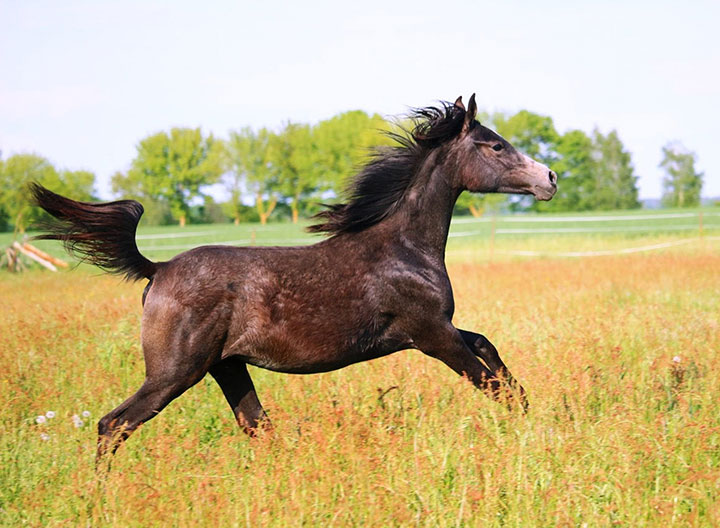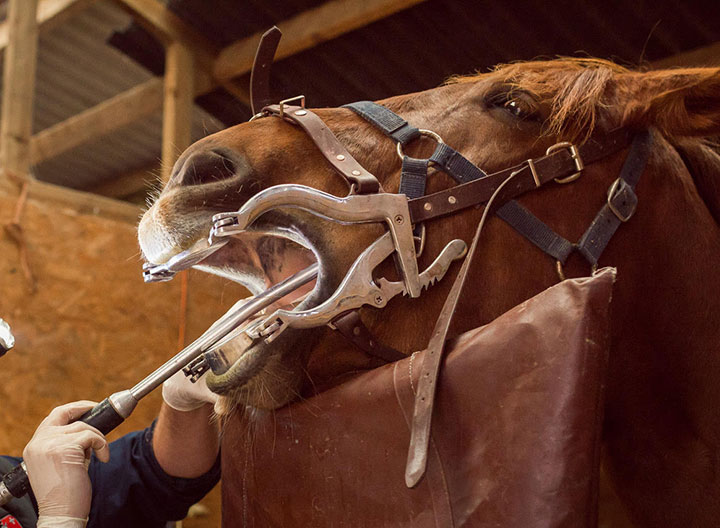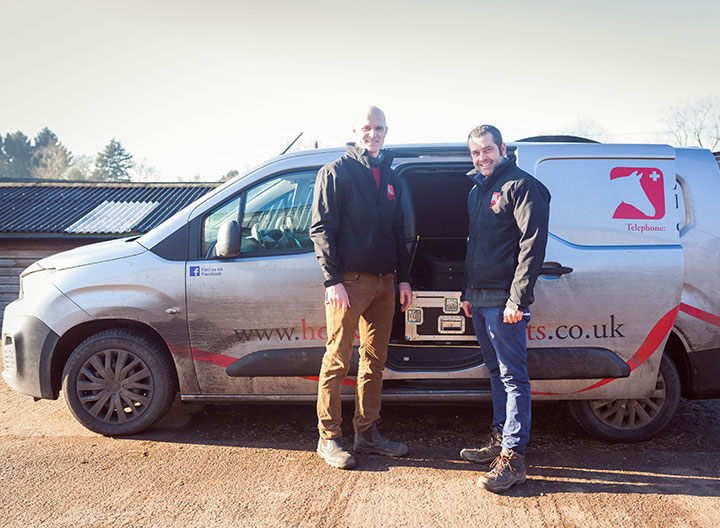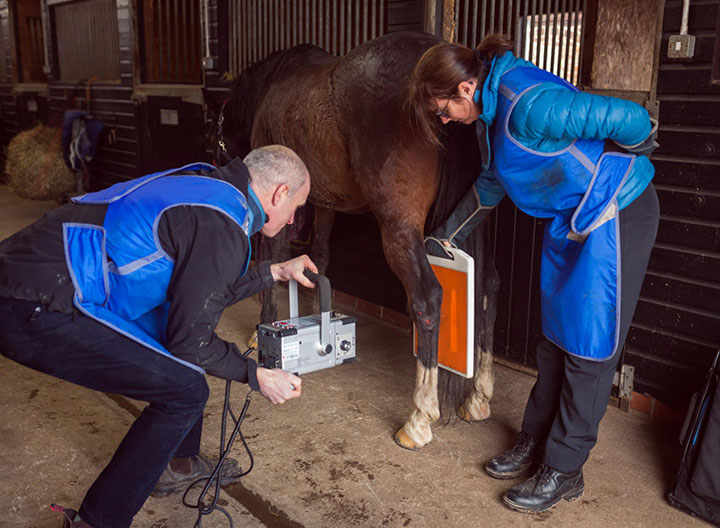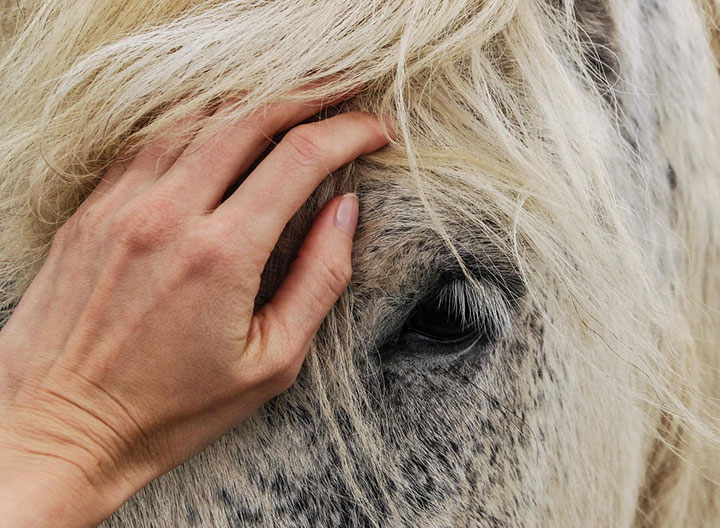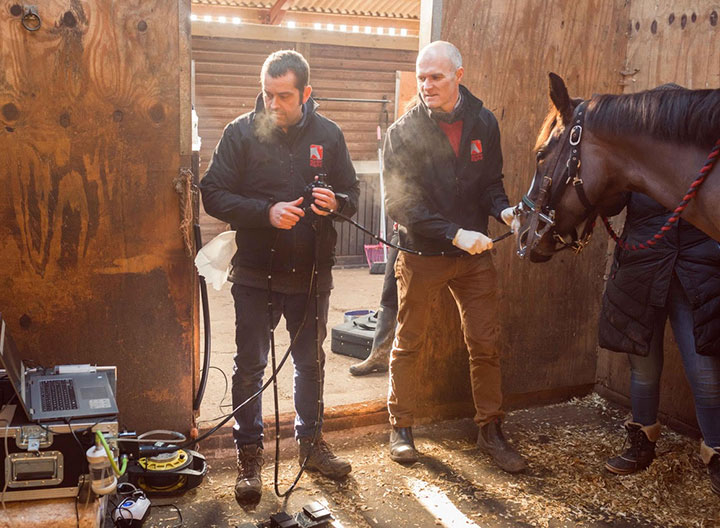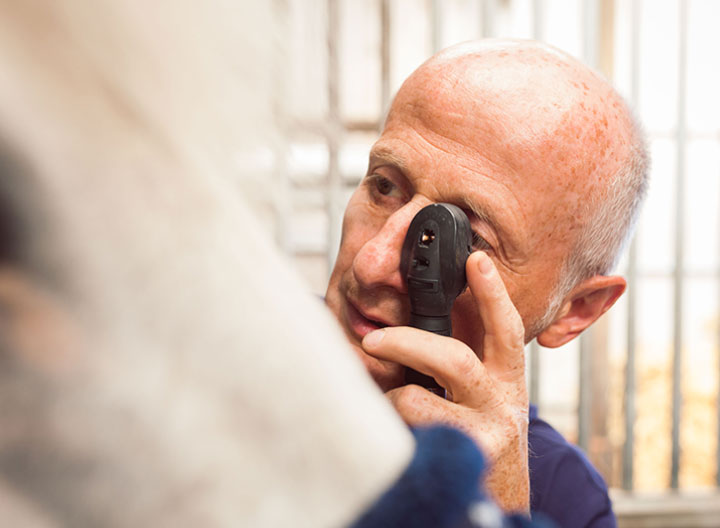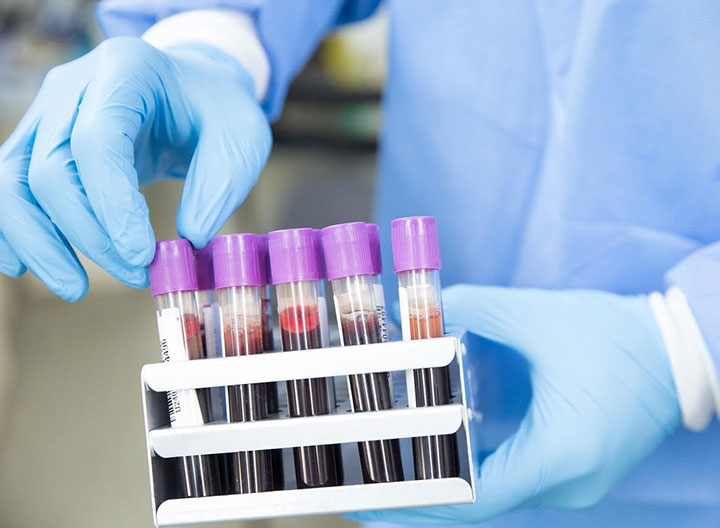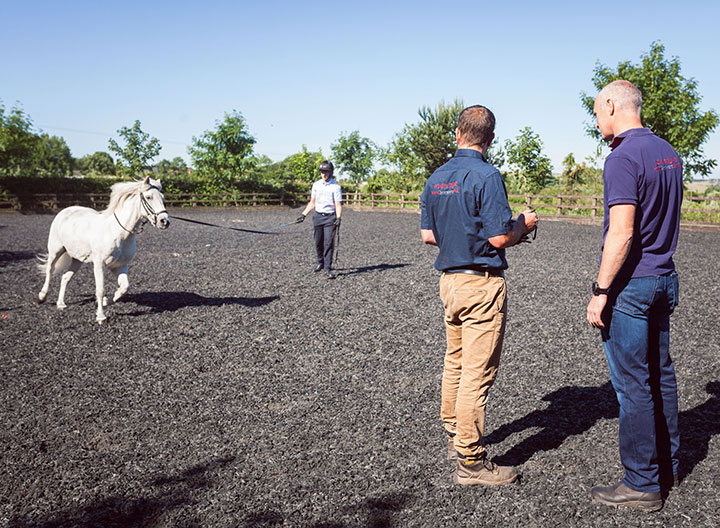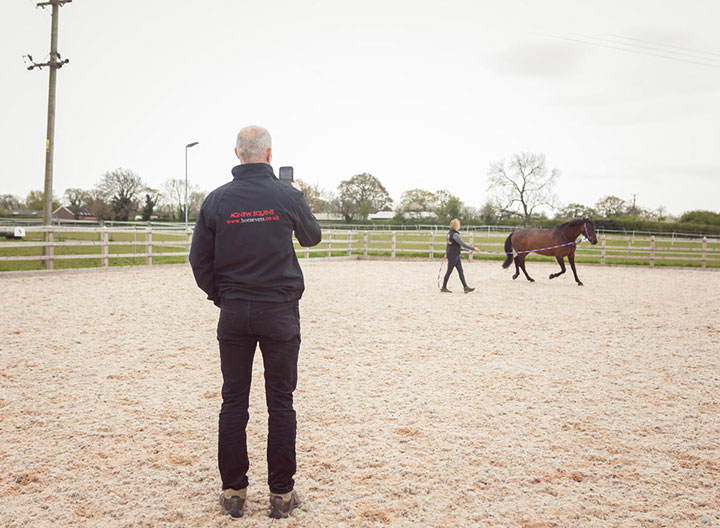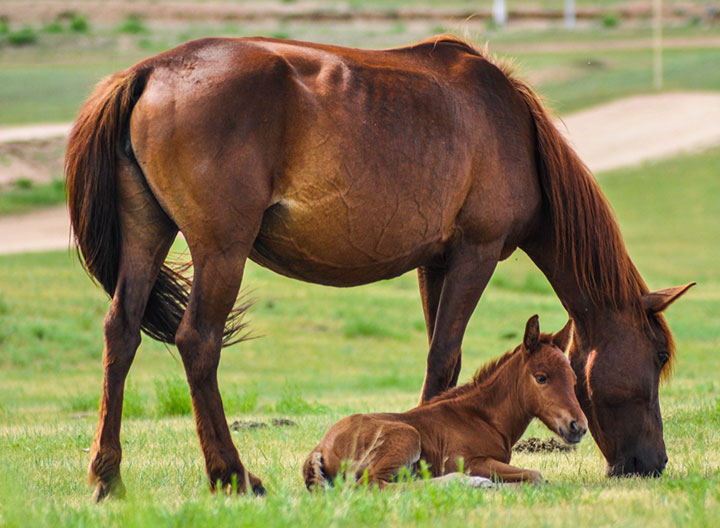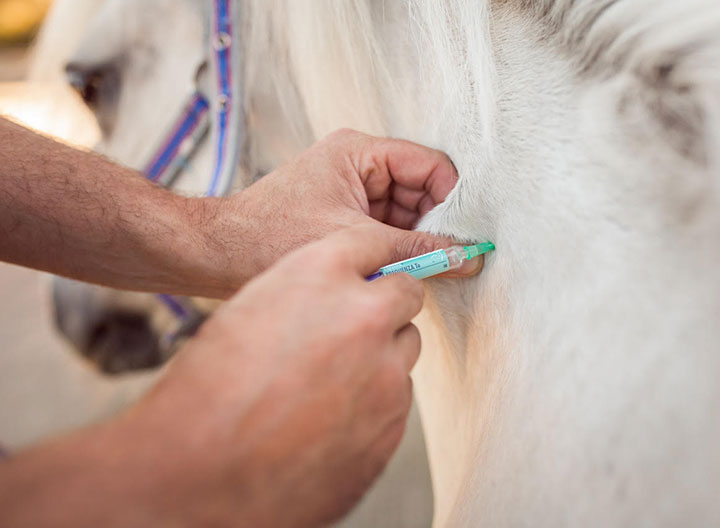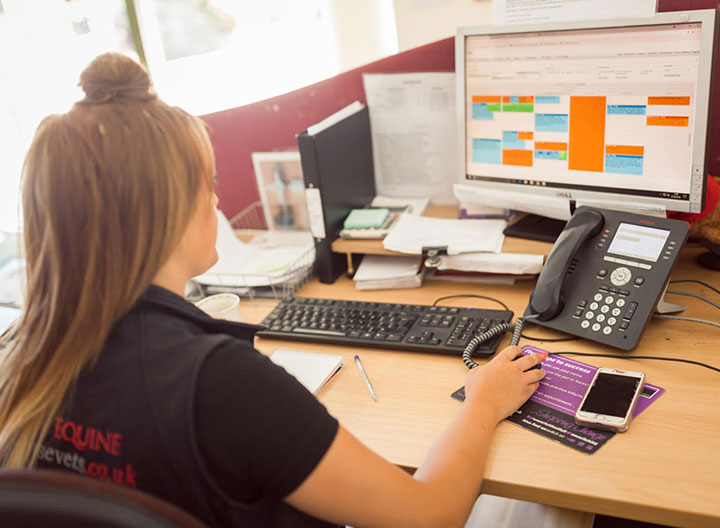Choke
Choke is a relatively common condition that occurs when there is a blockage in the horse's oesophagus (food pipe) - the tube that takes food from the back of the mouth (pharynx) to the stomach. Choke may be partial or complete.
Choke can look alarming, especially if you’ve never seen it before. When a clump of poorly chewed feed or a big chunk of apple gets stuck in a horse’s oesophagus, the muscles may spasm and clamp it in place, causing him to cough, gag and produce lots of drool and nasal discharge.
Unlike choking in people, the good news is choke in horses doesn’t interfere with the ability to breathe, so it does not pose an immediate threat to life. However, if it doesn’t clear on its own fairly quickly you’ll want to give us a call to prevent a minor problem from leading to serious complications.
Signs Of Choke
- Abruptly stops eating, and perhaps takes on an alarmed or distressed look
- Difficulty swallowing, no interest in food
- Food material and saliva coming down both nostrils
- Coughing, gagging, retching
- Stretching/extending his neck and/or shaking his head
- Drooling heavily and expelling a discharge that includes bits of food from his nostrils
- Showing signs of discomfort, such as sweating or pawing or spasms down the neck
What To Do?
- Remove all hay, feed and water, and do not let the horse graze. Some choking horses may attempt to continue eating and drinking, which could increase the size of the blockage and may make the case more serious.
- Call the vet! Any choke that continues more than a few minutes is an emergency that requires immediate attention.
What To Do While Waiting For The Vet
- Keep the horse calm. Encourage them to stand quietly with their head lowered. If they are in a pasture, bring them in. Placing a friend nearby may help to calm the horse, but you’ll know best.
- Monitor the situation. If you see nasal discharge that contains bits of chewed food, wipe it away with a clean rag, but take note of the colour, volume and consistency so you can report it to your vet. Taking photos can also be useful, and call your vet with an update if you see blood, foreign objects or anything other than food draining from your horse’s nose or mouth.
- Also let your vet know if the discharge stops. Often, as the horse continues to produce and swallow saliva, the oesophageal muscles relax and the blockage passes through to the stomach. If this happens, the case is no longer an emergency, but your vet will still want to examine the horse for potential causes of the choke.
- Depending on the severity of the choke, an endoscopic exam of the oesophagus to look for tears or other injuries may be advisable. Your vet may also recommend management changes to help prevent it happening again.

